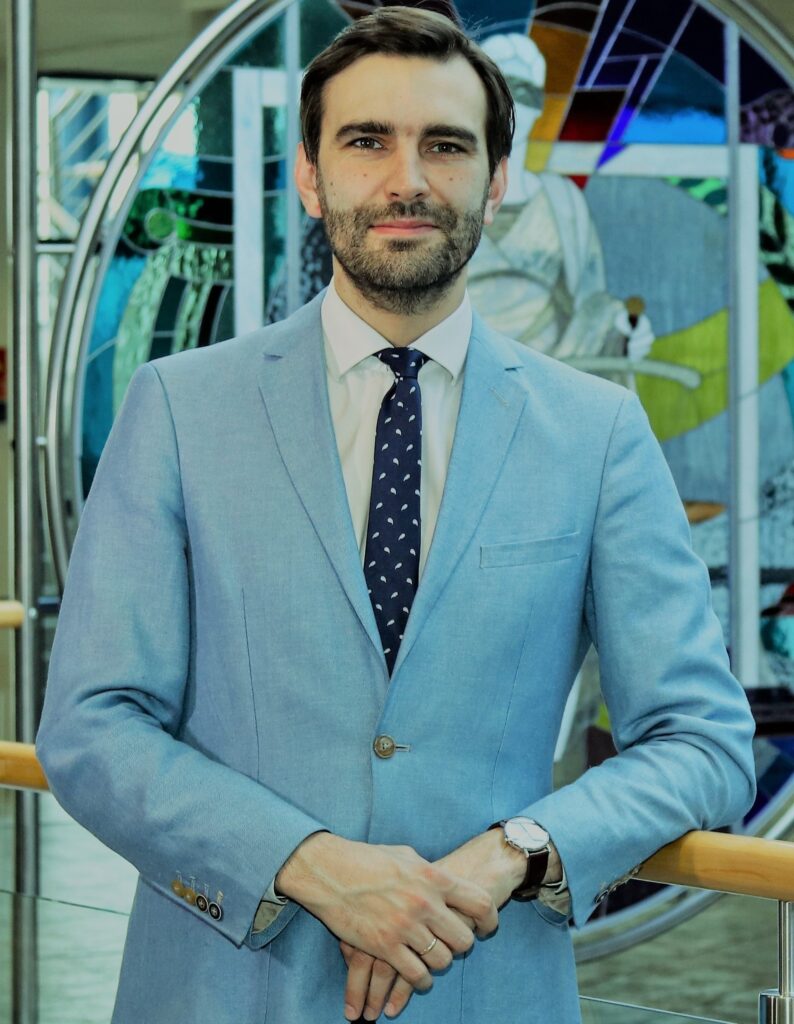Title: EU communicable diseases law – supranational law as an effective response to cross-border threats
Abstract
The pandemic of the SARS-CoV-2 virus that causes COVID-19 has served as a stark reminder that for infectious diseases, national borders do not exist. International law has long recognized this circumstance. The International Health Regulations (IHR), issued under the auspices of the WHO and forming the modern legal framework for the prevention and control of infectious diseases internationally, have their origin in the International Sanitary Conference held in Paris in 1851, responding to the great cholera epidemics in Europe.
Given the place that the European Union occupies on the international stage, with its economic and scientific potential and legal culture, it is reasonable to ask to what extent the EU can and should participate in the global system for the prevention and control of infectious diseases, and what contribution it can make in this area? Moreover from the perspective of EU citizens, it is equally important what role the community plays in the system of prevention and control of infectious diseases and how this translates into their health security. In practice, this entails a question about the EU’s legal tools at its disposal in this area.
Considering the specificity of European Union law as a supranational law, it is an excellent subject to show how close international cooperation (with the help of good, effective, and efficient law) can contribute to preventing the spread of infectious diseases and effectively combatting them. The European Union can set an example to the entire international community on how to properly navigate the problem of communicable diseases through proper legislation of supranational character.
Funding
UGrants-Start no 533-P000-GS64-22 – Ponadnarodowe prawo chorób zakaźnych w Unii Europejskiej, jako skuteczne narzędzie przeciwdizałania zagrożeniom transgranicznym.
Marcin Michalak short CV
WORK EXPERIENCE
- 10.2012 – 06.2018 Teaching and research assistant at the Department of the History of Law at the Faculty of Law of the University of Gdansk.
- 07.2018 – 01.2020 Assistant professor at the Department of the History of Law at the Faculty of Law of the University of Gdansk.
- From 02.2020 Assistant professor at the Department of the European Law and Comparative Law at the Faculty of Law of the University of Gdansk.
- 10.2015 – 02.2016 Internship at Yale University. Scholarship for the preparation of doctoral dissertation.
EDUCATION
- 2017 PhD – University of Gdansk, Faculty of Law; dissertation title: Development of the medical malpractice law under the American legal system 1794-1860.
- 2012 M.A. – University of Gdansk, Faculty of law.
- 2011 Yale University Sherwin B. Nuland Summer Institute in Bioethics.
THE MOST IMPORTAT SCIETIFIC ACHIVEMENTS
- Book: Michalak Marcin, Kształtowanie się odpowiedzialności za niewłściwe leczenie na
gruncie amerykańskiego systemu prawnego w latach 1794-1860. Studium historycznoprawne (Development of the medical malpractice law under the American legal system
1794-1860. Historical and legal study.), C.H. Beck, Warsaw 2019. - Article: Michalak Marcin: „Development of the medical malpractice law and legal
instrumentalism in the Antebellum America”, in: Modernisation, national identity and legal
instrumentalism: studies in comparative legal history, vol. 1, Private law / Gałędek Michał,
Klimaszewska Anna (ed.), Legal History Library, no 35, 2020, ISBN 978-90-04-39528-2, pp.
164-190, DOI:10.1163/9789004417274_008 - M. Michalak, Separation of powers as a EU value [in:] Oxford Encyclopedia of EU Law /
Garben Sacha , Gormley Laurence (ed.), 2022, Oxford, Oxford University Press, ISBN 978-0-
19-187702-5 - Conference: Participation in the 2018 ASLH (American Society for Comparative Legal
History) Annual Meeting Program (Houston, Texas) – title of the paper presented with prof.
Michal Galedek (University of Gdansk) – “In What Aspects did the Constitution of 3 May
1791 Represent a Founding Moment for the Development of Polish Constitutionalism in the
First Part of the 19th Century”.

